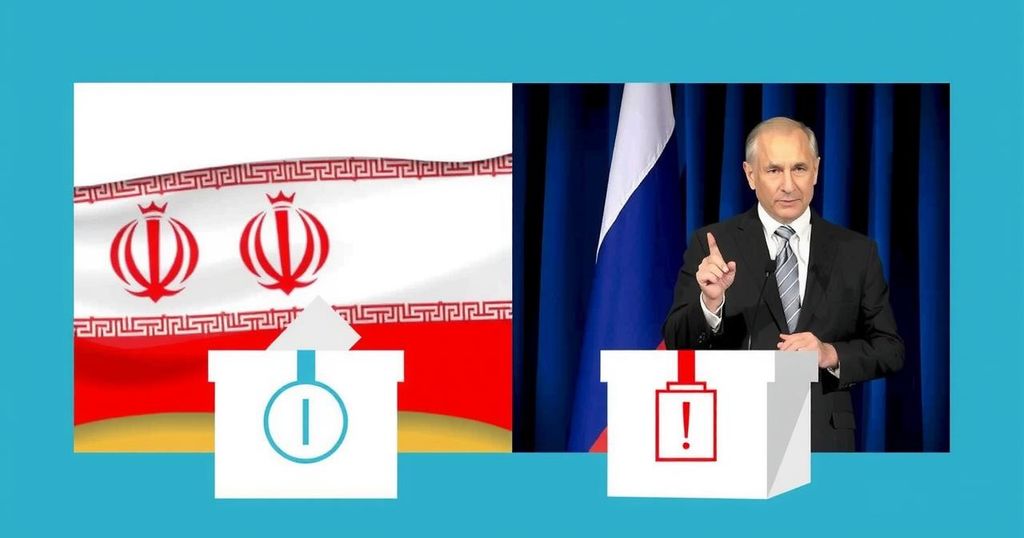The United States has enacted sanctions against Iranian and Russian groups for alleged election interference, including the Cognitive Design Production Center and the Center for Geopolitical Expertise. The sanctions target entities accused of disinformation campaigns designed to manipulate the upcoming 2024 US elections and infringe upon democratic integrity. Separate sanctions were also applied to a Russian judge in relation to the detainment of a political dissenter.
On Tuesday, the United States government imposed new sanctions against several Iranian and Russian organizations, accusing them of attempting to interfere with electoral processes in the United States. The targeted entities include the Cognitive Design Production Center, linked to Iran’s Islamic Revolutionary Guard Corps (IRGC), and the Moscow-based Center for Geopolitical Expertise. These organizations have been accused of executing disinformation campaigns designed to manipulate American public opinion and incite socio-political discord as the 2024 elections approach.
Bradley Smith, the Acting Under Secretary of the Treasury for Terrorism and Financial Intelligence, stated, “The Governments of Iran and Russia have targeted our election processes and institutions and sought to divide the American people through targeted disinformation campaigns.” The US Treasury highlighted that the Cognitive Design Production Center was reportedly planning operations to amplify socio-political tensions among American voters.
Additionally, the Center for Geopolitical Expertise has been reported to facilitate the creation of deep fake videos and the dissemination of misinformation regarding electoral candidates. Notably, individual sanctions were also levied against Valery Mikhaylovich Korovin, the director of the center.
These sanctions are part of a broader strategy by the US government, which has previously acted against the IRGC, GRU, and associated groups due to their interference in US democratic processes. Earlier this year, US officials highlighted allegations that Iranian authorities were actively undermining trust in American democratic institutions through various covert activities targeting individuals close to presidential campaigns.
Separately, the Treasury announced sanctions against Russian judge Olesya Mendeleeva for her role in the conviction of former Moscow city councillor Alexei Gorinov, who was punished for criticizing Russia’s actions in Ukraine. Smith condemned Russia’s judicial practices, stating, “Russia’s manipulation of its legal system silences dissent and suffocates the truth about Russia’s indefensible war against Ukraine.” This incident has drawn international attention, with calls for Gorinov’s release from multiple human rights advocates.
The imposition of sanctions by the United States against foreign organizations, particularly those linked to hostile governments such as Iran and Russia, is part of a larger strategy to protect the integrity of American electoral processes. Historical interference by foreign entities has raised concerns within the US government, prompting legal measures aimed at deterring such actions. Organizations like the IRGC and the GRU have been implicated in clandestine operations that threaten democratic institutions, warranting ongoing scrutiny and action from US authorities. The situation regarding Alexei Gorinov further illustrates the tensions surrounding freedom of expression in light of Russia’s political climate amid its ongoing conflict in Ukraine.
In conclusion, the United States has reinforced its commitment to safeguarding democratic integrity by imposing sanctions on Iranian and Russian entities that are accused of election interference. With an eye toward the upcoming 2024 elections, these measures aim to counteract disinformation and socio-political manipulation. Additionally, the actions taken against Russian officials involved in the suppression of dissent highlight the broader implications of political repression in authoritarian regimes.
Original Source: www.barrons.com






